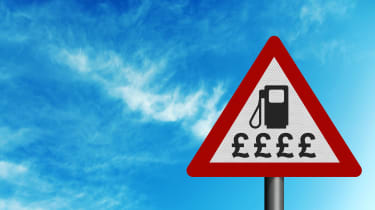Competitions and Markets Authority gets powers to shine the spotlight on profiteering fuel station operators
Mike Rutherford
The UK’s consumer watchdog will get new powers to demand price and profit information from road fuel retailers, that will put the spotlight on future attempts to hike prices unfairly.
The powers have been granted to the Competitions and Markets Authority (CMA) by the government’s Department for Energy Security and Net Zero, and should become law later next year. Amendments were tabled to the Digital Markets, Competition and Consumers Bill in parliament on 15 November 2023, that will force petrol and diesel retailers, including supermarkets, to share information with the CMA on how much they are charging customers for fuel, versus their profit.
The change to the law is designed to help improve competition in the market and “will shine a light on any attempt from retailers to unfairly hike up fuel prices”, the government says.
-
Forecourt fuel theft surges by 77 per cent, latest figures suggest
Under the new amendment, the CMA will become the body responsible for monitoring petrol and diesel prices, and reporting any sign of malpractice. The appointment of a fuel price monitor was one of the recommendations the CMA itself made following its high-profile year-long investigation into filling station prices that ended in the summer, and it volunteered itself for the role.
According to a government statement, any fuel retailer that refuses to come clean on their fuel prices and margins once the amendments become law, could face a fixed fine of up one per cent of global turnover, or an ongoing fine of up to five per cent of daily turnover.
The CMA has already begun working on its new remit, and last week published its first road fuel report as ‘unofficial’ monitor, when it raised new concerns that the UK fuel market is not working as it should.
Looking at the period from the end of May 2023 to October 2023, this first CMA monitoring report shows that prices rose during June, July and August, driven by an increase in global oil prices. However, “wholesale prices then reduced in September and October while retail prices did not,” the CMA said. “While it is too early to draw definitive conclusions, this could indicate a lack of competitive response from fuel retailers if this trend continues.”
On retailer margins, the CMA says on average they fell around 4.5 pence per litre from an average of 11.9ppl to 7.3ppl between the start of the year to August 2023. “Nonetheless, August margins remain higher than those for any year prior to 2021,” it said.
Sarah Cardell is chief executive of the CMA, and she reckons the latest data paints a mixed picture for motorists.
“Drivers are feeling the pain again as petrol prices at the pump have been on the rise since June,” she says. “Over the summer we saw rising wholesale costs, but more recent trends give cause for concern that competition is still not working well in this market to hold down pump prices.”
Cardell describes this first report from the CMA as an important step, but said that while many filling station operators had provided information voluntarily pending a change in the law, major retailers Shell and Moto-Way had declined to respond to its request for data. “That’s why it is so important that a permanent fuel monitor – with powers to demand information from all retailers – is put in place to give a fuller picture of how the market is working,” she said.
-
Potholes? Fuel prices? Other people? Here's what makes UK motorists see red on the road
RAC fuel spokesman Simon Williams said: “We welcome the CMA being given new powers to take action against retailers that don’t pass on the savings they benefit from when wholesale fuel costs fall significantly. Due to our long-term monitoring of retail and wholesale prices, we have been calling for fairer, more transparent pricing for years.
“While the CMA’s report concluded the supermarkets had overcharged to the tune of £900m last year, our data shows this behaviour is continuing to this day with supermarket fuel margins more than double what they were before the pandemic.
“These new powers can’t come soon enough because, as it stands, the Treasury’s 5p-a-litre fuel duty discount is not making it to drivers at the pumps.”
How expensive is fuel in your area? Tell us in the comments section below…
Source: Read Full Article


 Forecourt fuel theft surges by 77 per cent, latest figures suggest
Forecourt fuel theft surges by 77 per cent, latest figures suggest
 Potholes? Fuel prices? Other people? Here's what makes UK motorists see red on the road
Potholes? Fuel prices? Other people? Here's what makes UK motorists see red on the road